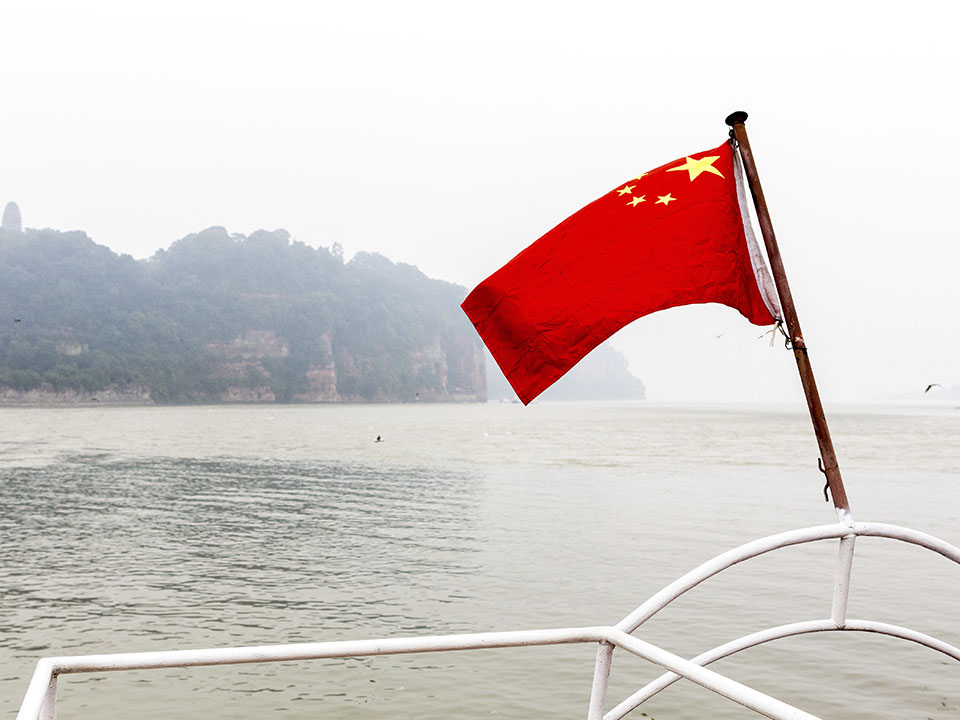China: PH-US Mutual Defense Treaty will not move us a bit
By JOVILAND RITA, GMA Integrated News Published April 12, 2024 2:56pm China on Friday said the Mutual Defense Treaty (MDT) between the Philippines and the United States (US) will not change its position on the South China Sea issue. The Chinese Embassy in the Philippines made the statement after US President Joe Biden again guaranteed […]


By JOVILAND RITA, GMA Integrated News
China on Friday said the Mutual Defense Treaty (MDT) between the Philippines and the United States (US) will not change its position on the South China Sea issue.
The Chinese Embassy in the Philippines made the statement after US President Joe Biden again guaranteed that any attack on a Philippine aircraft, vessel, or armed forces in the South China Sea will invoke the MDT.
“The US is not a party to the South China Sea issue and is not in the position of interfering in issues between China and the Philippines. The recent tension in the South China Sea would not have occurred without the US egging on the Philippines,” the Chinese Embassy said.
“China is determined to uphold our territorial sovereignty and maritime rights and interests. The US-Philippines Mutual Defense Treaty will not move us a bit from our will and resolve,” it added.
GMA News Online has sought comment from Malacañang on the matter but it has yet to provide a reply as of posting time.
‘Ironclad’
Biden’s reiteration of the US’ ironclad commitment to the Philippines came at the Trilateral Leaders’ Summit in Washington between the Philippines, the US, and Japan, where the leaders of the three countries committed to a free, prosperous, and secure Indo-Pacific.
“I want to be clear. The United States’ defense commitments to Japan and the Philippines are ironclad. They’re ironclad,” Biden said.
“As I said before, any attack on Philippine aircraft vessels or armed forces in the South China Sea will invoke our mutual defense treaty,” he added.
Signed by Manila and Washington in 1951, the MDT is a defense pact that unites the two allies to help defend each other from aggression.
Under Article IV of the treaty, it is stated that the Philippines and the US recognize that an armed attack in the Pacific area on either of them would be dangerous to their respective peace and safety.
The Philippines and the US also declared that they would act to meet the common dangers in accordance with their constitutional processes.
Under Article V, it is determined that the treaty covers an armed attack on the metropolitan territory of either of the parties, or on the island territories under its jurisdiction in the Pacific Ocean, or on their armed forces, public vessels, or aircraft in the Pacific.
PH-US-Japan alliance
Meanwhile, at a press conference in Beijing on Thursday, China Foreign Ministry Spokesperson Mao Ning was asked about the alliance of the the Philippines, Japan, and the US.
“We will never allow any country to interfere in China’s domestic affairs, harm its interests, and smear its image,” Mao said.
“China will defend its sovereignty, security and development interests, and stay committed to the peace, stability and lasting prosperity of the Asia-Pacific region,” she added.
For Mao, China’s activities in the East China Sea and South China Sea are in “full compliance with international law.”
“The US and Japan have misrepresented the facts, violated China’s territorial sovereignty and breached international law and basic norms in international relations,” Mao said.
“They pose the real threat to regional peace and stability,” she added.
Tensions between China and the Philippines have heightened in recent months as both sides trade accusations over a series of incidents in the West Philippine Sea.
China claims almost the entire South China Sea, a conduit for more than $3 trillion in annual ship commerce. Its territorial claims overlap with those of the Philippines, Vietnam, Malaysia and Brunei.
Parts of the waters within the Philippines’ exclusive economic zone have been renamed as West Philippine Sea.
In 2016, an international arbitration tribunal in the Hague said China’s claims had no legal basis, a decision Beijing has rejected. — RSJ, GMA Integrated News














